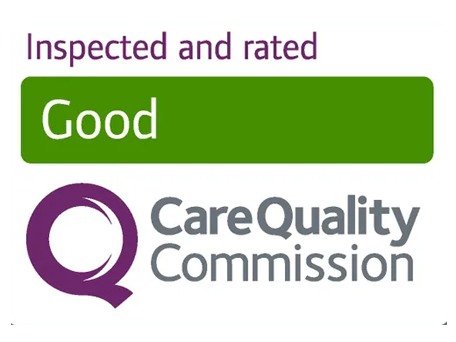Palliative Care at Home

Our carers uphold our reputation and are valued in the community. They are themselves part of our own community of special people wanting to deliver the highest standard of care – upholding the principles of kindness and compassion – to give our clients dignity and respect and their families the greatest gift of all – peace of mind.
Palliative Care
Our Palliative Care at home service supports adults who have been diagnosed with a life-threatening illness and wish to remain living in the comfort of their own homes. This service can be provided at all possible stages of illness, diagnosis, treatment, cure, death, and bereavement.
The main objective of our Palliative Care at-home service is to achieve the best quality of life for you as well as your family. We understand that your family and friends may have strong feelings about your condition, and it may be difficult for you to express your feelings for fear of upsetting them. We can help you and your loved ones to discuss your feelings and provide extra support. In addition, we can provide support through periods of bereavement.
As part of our sensitive Palliative Care at home service, we ensure that you are treated as an individual, with dignity and respect. We will provide you with a personalized care plan that will take into account your needs, preferences, and choices. We also like to ensure continuity of care, which is why we only select a small number of carers to work with you, who get to know your personality and preferences.
What is Palliative Care?
Palliative care is a specialized medical approach that focuses on providing relief from the symptoms and stress of a serious illness, regardless of the diagnosis or stage of disease. It aims to improve the quality of life for both the patient and their loved ones by offering comprehensive support throughout the entire illness journey.
Our palliative care services can be provided alongside curative treatment or as the main focus of care when curative options are no longer viable. The goal is to ensure that patients receive compassionate care that prioritizes their comfort and dignity.
What is Palliative Care?
Palliative care is a specialized medical approach that focuses on providing relief from the symptoms and stress of a serious illness, regardless of the diagnosis or stage of disease. It aims to improve the quality of life for both the patient and their loved ones by offering comprehensive support throughout the entire illness journey.
Our palliative care services can be provided alongside curative treatment or as the main focus of care when curative options are no longer viable. The goal is to ensure that patients receive compassionate care that prioritizes their comfort and dignity.
Who Can Benefit from Palliative Care?
- Cancer
- Heart disease
- Chronic obstructive pulmonary disease (COPD)
- Neurological disorders (e.g., Alzheimer’s, Parkinson’s)
- Kidney failure
- Liver disease
- And many other life-limiting conditions.
It is suitable for patients of any age and at any stage of their illness. Whether you are newly diagnosed or are navigating the later stages of a condition, our team is here to provide support tailored to your unique needs.
Who Can Benefit from Palliative Care?
- Cancer
- Heart disease
- Chronic obstructive pulmonary disease (COPD)
- Neurological disorders (e.g., Alzheimer’s, Parkinson’s)
- Kidney failure
- Liver disease
- And many other life-limiting conditions.
It is suitable for patients of any age and at any stage of their illness. Whether you are newly diagnosed or are navigating the later stages of a condition, our team is here to provide support tailored to your unique needs.
Benefits of Palliative Care at Home
Familiar Environment
care at home allows patients to remain in a familiar environment filled with cherished memories and personal significance. This sense of familiarity can greatly enhance emotional well-being
Personalized Attention
With palliative home care, our dedicated healthcare assistants prioritize your comfort and preferences, ensuring that all aspects of your care including medical, emotional, and social care are addressed
Family Involvement
Family participation enhances the overall experience, allowing loved ones to provide emotional support, assist with daily tasks, and help make important care decisions. This involvement fosters stronger connections and support networks
Benefits of Palliative Care at Home
Familiar Environment
care at home allows patients to remain in a familiar environment filled with cherished memories and personal significance. This sense of familiarity can greatly enhance emotional well-being
Personalized Attention
With palliative home care, our dedicated healthcare assistants prioritize your comfort and preferences, ensuring that all aspects of your care including medical, emotional, and social care are addressed
Family Involvement
Family participation enhances the overall experience, allowing loved ones to provide emotional support, assist with daily tasks, and help make important care decisions. This involvement fosters stronger connections and support networks
Is Palliative Care End-of-life Care?
Palliative care is not end-of-life care. Palliative care focuses on providing relief from the symptoms and stress of a serious illness. It aims to improve the quality of life for both the patient and their family. Palliative care can be provided at any stage of a serious illness and can be given alongside curative treatment.
Whereas End-of-life care is a subset of palliative care that specifically addresses the needs of individuals who are nearing the end of their life. End-of-life care focuses on comfort, dignity, and support for both the patient and their loved ones during the final stages of life.
While all end-of-life care is palliative, not all palliative care is end-of-life care. Palliative care is broader and can be beneficial at any stage of a serious illness.
Palliative care at home is specialized medical care that focuses on providing relief from the symptoms and stress of a serious illness for those who wish to receive care in the comfort of their own surroundings
Yes, all our caregivers are highly trained professionals with relevant qualifications and experience. They undergo background checks and continuous training to ensure the highest standards of care.
Yes, palliative care can be combined with curative treatments. Its goal is to help manage symptoms and improve quality of life while patients continue with their prescribed treatments.
Palliative care can be provided at any stage of a serious illness, while hospice care is typically for patients nearing the end of life. Both focus on comfort and quality of life, but palliative care may continue alongside treatments aimed at curing the illness. curative treatments. Its goal is to help manage symptoms and improve quality of life while patients continue with their prescribed treatments.
There is no time limit for receiving palliative care. It can be provided for as long as it’s needed, depending on the patient’s condition and care goals.
No, palliative care does not mean giving up. It complements curative treatments by focusing on comfort, symptom management, and quality of life.
Expect a multidisciplinary team including doctors, nurses, and caregivers who will collaborate to manage symptoms, provide emotional support, and improve daily living for you or your loved one.
Is Palliative Care End-of-life Care?
Palliative care is not end-of-life care. Palliative care focuses on providing relief from the symptoms and stress of a serious illness. It aims to improve the quality of life for both the patient and their family. Palliative care can be provided at any stage of a serious illness and can be given alongside curative treatment.
Whereas End-of-life care is a subset of palliative care that specifically addresses the needs of individuals who are nearing the end of their life. End-of-life care focuses on comfort, dignity, and support for both the patient and their loved ones during the final stages of life.
While all end-of-life care is palliative, not all palliative care is end-of-life care. Palliative care is broader and can be beneficial at any stage of a serious illness.
Palliative care at home is specialized medical care that focuses on providing relief from the symptoms and stress of a serious illness for those who wish to receive care in the comfort of their own surroundings
Yes, all our caregivers are highly trained professionals with relevant qualifications and experience. They undergo background checks and continuous training to ensure the highest standards of care.
Yes, palliative care can be combined with curative treatments. Its goal is to help manage symptoms and improve quality of life while patients continue with their prescribed treatments.
Palliative care can be provided at any stage of a serious illness, while hospice care is typically for patients nearing the end of life. Both focus on comfort and quality of life, but palliative care may continue alongside treatments aimed at curing the illness. curative treatments. Its goal is to help manage symptoms and improve quality of life while patients continue with their prescribed treatments.
There is no time limit for receiving palliative care. It can be provided for as long as it’s needed, depending on the patient’s condition and care goals.
No, palliative care does not mean giving up. It complements curative treatments by focusing on comfort, symptom management, and quality of life.
Expect a multidisciplinary team including doctors, nurses, and caregivers who will collaborate to manage symptoms, provide emotional support, and improve daily living for you or your loved one.
CONNECT WITH US
For further information on any of the services that we can provide for you, please contact us in the following ways:









